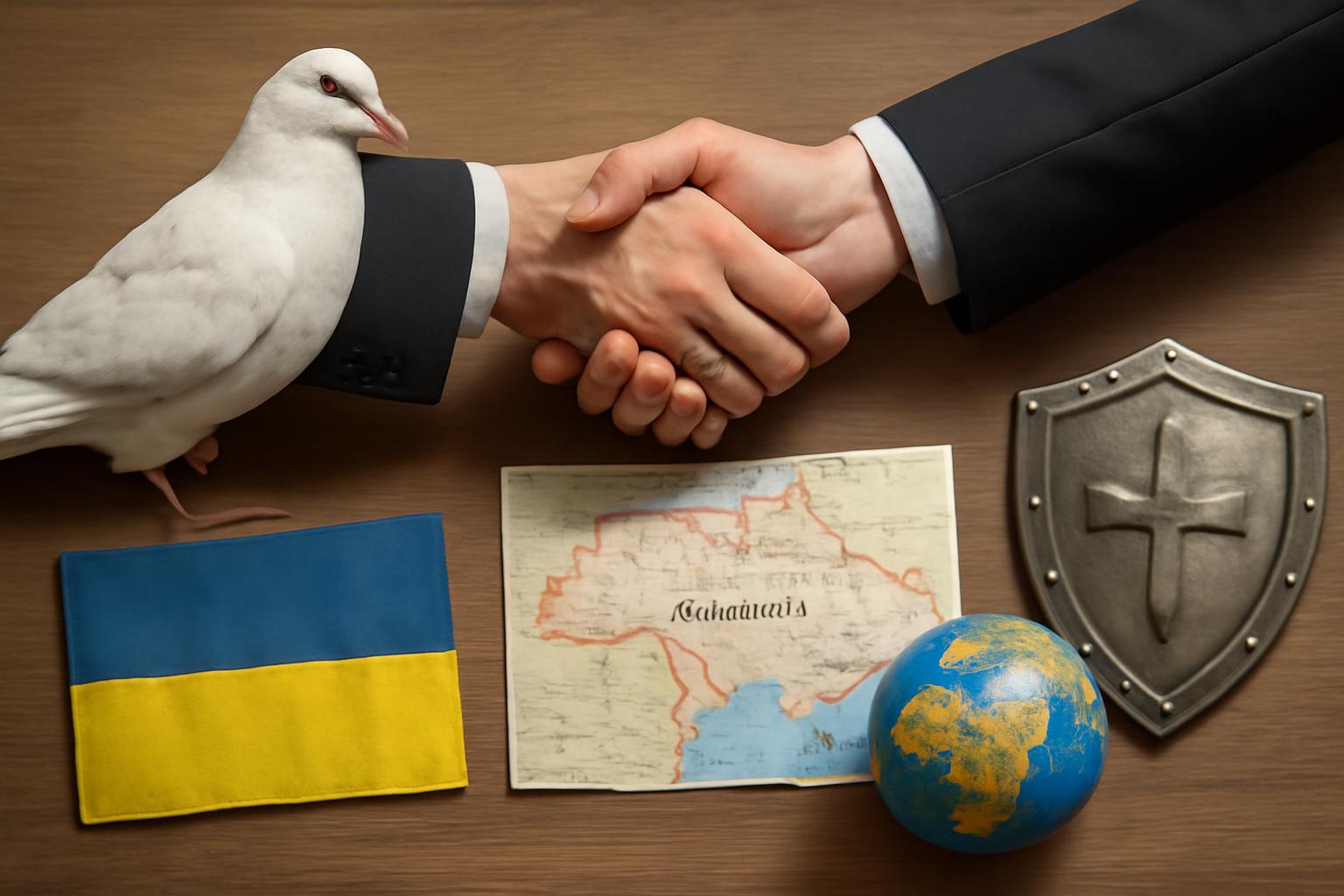After talks with the American president and European partners, German Chancellor Merz lays out five non-negotiable conditions for any peace settlement in Ukraine: safeguard Europe’s and Ukraine’s security interests; Ukraine must sit at the negotiating table for follow-up talks; begin with a clear sequence that starts with a ceasefire; Ukraine is willing to discuss territorial questions, but the contact line will be the starting point and there can be no legal recognition of Russian occupations; negotiations must include robust security guarantees for Kyiv and long-term Western military support, all within a shared transatlantic strategy to pressure Russia if progress stalls. Merz says Trump largely shares these positions, and the discussions were constructive. Earlier, European leaders issued a statement aligning on these points after a videoconference with Trump; NATO Secretary General Mark Rutte called the call “great.” Zelensky, who attended a Berlin meeting with Merz, underscored solidarity with Kyiv and pressed for an immediate ceasefire with strong security guarantees, insisting Ukraine must be at the negotiating table and that Russia should not have a veto over Europe’s and NATO’s prospects.
What we witness here is a theater of attempts to convert the living, evolving crisis into a fixed architecture of guarantees and sequences. The instinct to set thresholds—safeguards, table presence, ceasefire first, a clear starting line, and commitments to ongoing support—speaks to a longing for order amid chaos. Yet the impulse to bind the future with such certainty reveals the old temptation: to substitute a plan for the open, uncharted weather of human action. Security cannot be bought once and for all with lofty declarations; it must be earned by a civilization’s ability to translate liberty, law, and peaceful cooperation into enduring arrangements. There is virtue in Ukraine’s insistence on being at the table and in resisting any veto that would permit a great power to dictate Europe’s prospects. But there is peril in treating a ceasefire and guarantees as if they were a final settlement rather than a temporary arrangement subject to the test of time, trust, and adaptation.
Ultimately, the greater truth is that peace becomes lasting not through fear of coercion but through the reciprocal confidence that people, markets, and institutions can prosper within a framework of transparent rules and mutual restraint. A united front can be valuable, yet it must remain porous to local knowledge and to the spontaneous order of international relations, lest it ossify into a permanent police state over the continent. The courage we need is to pursue a settlement that honors sovereignty, restrains ambition, and relies on credible, limited commitments rather than inflated promises of permanent guarantees. Only then can a fragile ceasefire mature into a stable peace that does not require perpetual supervision, but allows nations to pursue their paths within a hopeful, open order.
